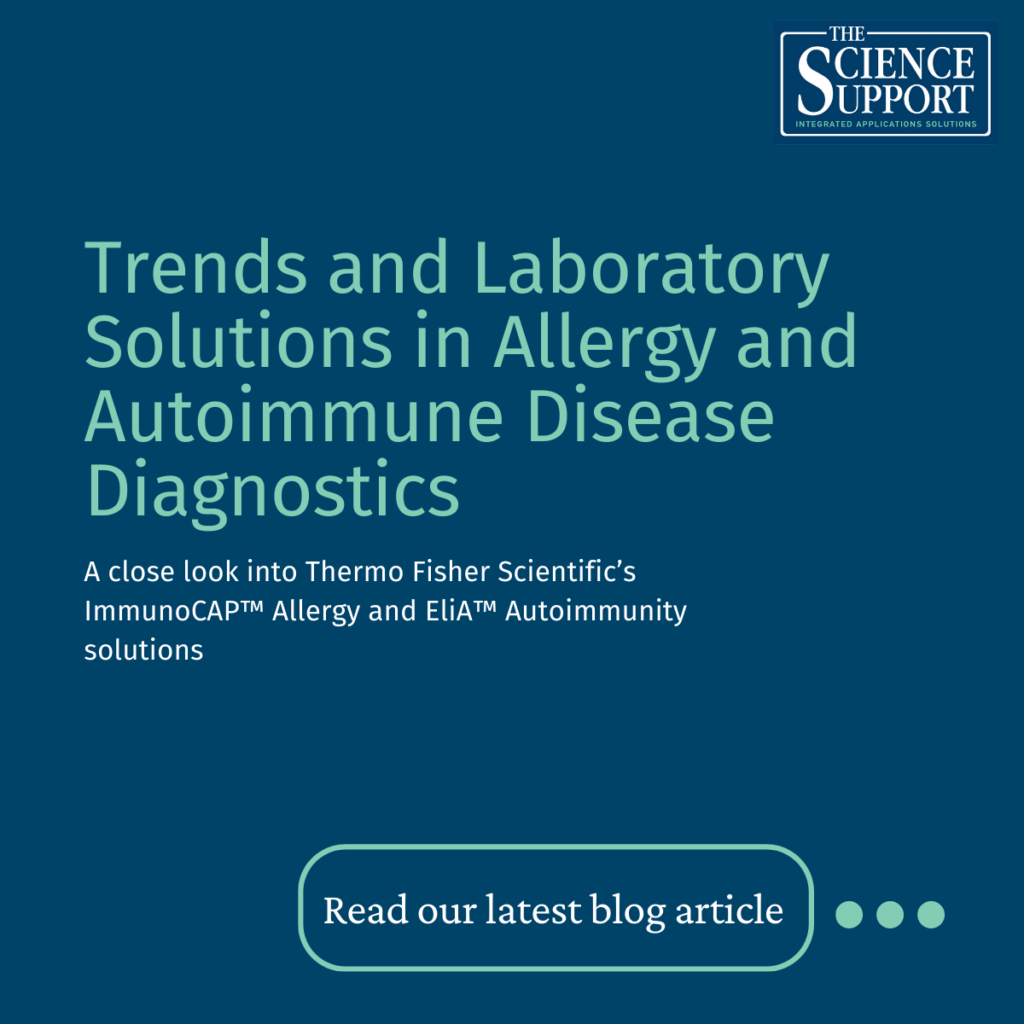Allergy and autoimmune diseases are on the rise globally, driving demand for more precise, reliable, and efficient diagnostic solutions. The evolution of diagnostic technologies has significantly improved early detection, patient management, and personalized treatment strategies. Among the most advanced tools available today, Thermo Fisher Scientific’s ImmunoCAP™ Allergy and EliA™ Autoimmunity solutions stand out as a gold standard in allergy and autoimmune disease diagnostics.
The Rising Need for Advanced Diagnostics
The prevalence of allergic conditions, including asthma, rhinitis, and food allergies, has been increasing, affecting millions worldwide. Similarly, autoimmune diseases such as rheumatoid arthritis, systemic lupus erythematosus, and celiac disease require early and accurate diagnosis to prevent severe complications. Traditional diagnostic methods, including skin prick tests and basic serological assays, often lack sensitivity, specificity, or reproducibility, necessitating a shift towards more advanced immunoassays.
Cutting-Edge Technologies in Allergy and Autoimmune Disease Testing
Recent advancements in diagnostic technologies focus on molecular allergology, multiplex assays, and automation, enhancing both sensitivity and specificity. Key trends in the field include:
- Molecular Allergy Diagnostics: The ImmunoCAP™ testing portfolio utilizes allergen component-based analysis, distinguishing between cross-reactive and primary sensitization, enabling more precise diagnosis.
- Multiplex Testing & Automation: High-throughput platforms allow simultaneous screening of multiple allergens or autoimmune markers, improving efficiency and accuracy.
- Biomarkers and AI-Driven Insights: AI-assisted data analysis helps in predictive modeling and personalized treatment plans.
Advanced Precision with ImmunoCAP™: A Benchmark in Allergy Diagnostics
ImmunoCAP™ testing solutions by Thermo Fisher Scientific have revolutionized allergy and autoimmune disease diagnostics through innovative fluorescent enzyme immunoassay (FEIA) technology. These systems offer:
- Unparalleled Sensitivity & Specificity: ImmunoCAP™ assays detect IgE antibodies with high precision, distinguishing between clinically relevant allergies and sensitizations.
- Standardization & Reproducibility: Widely recognized for consistent and reliable results across laboratories worldwide.
- Comprehensive Test Menu: The Thermo Fisher Scientific Allergen Encyclopedia features comprehensive scientific information on close to 600 whole allergens and allergen components, including clinical experience, descriptions and characteristics, cross-reactivity, allergen codes, and more.
- Automated Solutions for Efficiency: Phadia™ Laboratory Systems enhance lab efficiency, reducing manual workload and improving turnaround time.
Shorter Time to Autoimmunity Diagnosis with EliA™ Autoimmunity Assays
- High specificity & high sensitivity: The EliA™ portfolio combines high specificity with high sensitivity, as it comprises an ever-growing portfolio of more than 50 clinically relevant tests for autoimmune diseases.
- Fast diagnosis: Some EliA™ tests can help speed diagnoses by detecting autoantibodies early in the disease stage—possibly before symptom onset.
- Diagnostic Confidence: EliA™ tests help identify specific markers to aid in their diagnoses.
The Science Support: Partnering for Better Diagnostic Solutions
At The Science Support, we provide Thermo Fisher Scientific’s allergy and autoimmunity testing solutions to empower laboratories with cutting-edge technology. Our expertise ensures that healthcare providers and diagnostic laboratories can implement the most advanced tools for allergy and autoimmune disease testing.
Learn more about our diagnostic solutions and how we support laboratories in optimizing their workflows.
Looking Ahead: The Future of Allergy and Autoimmune Diagnostics
With increasing integration of next-generation sequencing, AI-based diagnostic platforms, and digital healthcare solutions, the future of allergy and autoimmune disease diagnostics is set to become even more precise and accessible. Investments in biomarker research, machine learning models, and automation will further enhance diagnostic capabilities, ensuring better patient outcomes.



